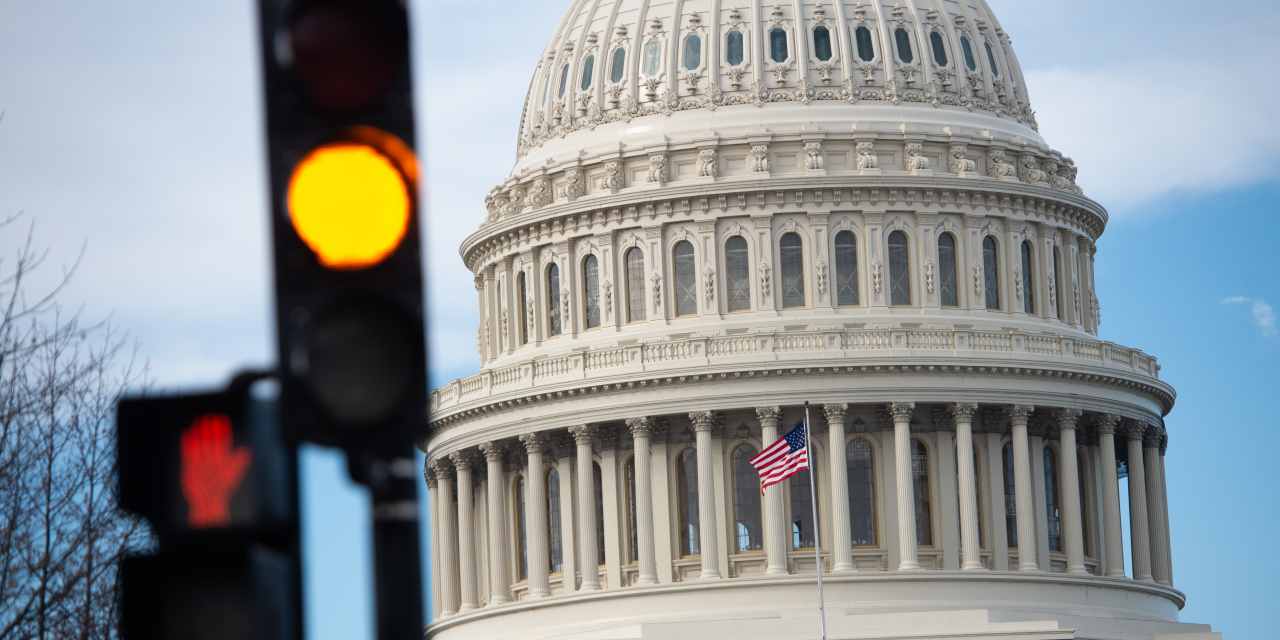The United States may be on the verge of a partial government shutdown, a situation not seen in approximately seven years, after a White House meeting intended to resolve funding disagreements ended without a consensus.

Financial analysts are increasingly concerned about the likelihood of a shutdown. Prediction markets are currently placing the probability of a shutdown at around 80%. Senate Minority Leader Chuck Schumer indicated significant disagreements remain after the White House meeting.
The looming shutdown stems from a disagreement between Democrats and Republicans regarding the inclusion of an extension for Affordable Care Act (ACA) subsidies, commonly known as Obamacare, in funding legislation. A Republican-controlled Senate vote failed to pass a stopgap funding bill, making the shutdown even more likely.
With the deadline fast approaching, here's a breakdown of the potential consequences of a U.S. federal government shutdown:
Market Implications
Historically, financial markets have generally weathered U.S. government shutdowns without major disruption.
- Historical Data: Since 1976, there have been 20 federal government shutdowns, lasting an average of eight days.
- Bond Market: Bond-price volatility tends to increase during shutdowns.
- Stock Market: The S&P 500 has, on average, risen 4.4% during shutdowns, suggesting other macroeconomic factors are more influential.
Analysts suggest that shutdowns are common and that government agencies are typically made whole once the situation is resolved, minimizing broader economic impacts. Shutdowns usually have minimal effect on economic growth.
Potential Resolution Strategies
Efforts to avert or resolve the shutdown are underway.
- Continuing Resolution: Senator Schumer has reportedly considered offering a short-term continuing resolution to Republican lawmakers to allow further negotiations on ACA subsidies.
- Negotiating Leverage: Republicans may have little incentive to accept a Democratic alternative.
- Possible Agreement: The most likely path to ending the shutdown may involve Democrats accepting a Republican promise to negotiate ACA subsidies later in exchange for votes to reopen the government.
Impact on the IRS
The Internal Revenue Service (IRS) plans to remain fully staffed and operational for the initial five business days of a shutdown, utilizing previously allocated funding. This allows the agency to continue processing income-tax returns, providing phone assistance, and conducting audits.
- Tax Deadline: Taxpayers who received an extension have until October 15th to file their returns to avoid penalties and interest.
- Limited Window: The IRS contingency plan only covers the first five days of the shutdown. The agency's operations beyond that point remain uncertain.
Essential Services and Benefits
Certain essential government services and benefits will continue to operate during a shutdown.
- Essential Services: These include the U.S. military, air-traffic control, law enforcement, border protection, in-hospital medical care, and power-grid maintenance.
- Social Security, Medicare, and Medicaid: Individuals enrolled in these programs will continue to receive their benefits. However, benefit verification and card issuance may be suspended.
- User Fee Funded Programs: Programs funded by user fees, such as the U.S. Postal Service, are expected to operate as usual.
- Unemployment Benefits: These are typically administered by U.S. states and are not expected to be affected by a federal government shutdown.
Potential Layoffs of Federal Workers
This shutdown may differ from past ones, as the Office of Management and Budget (OMB) has suggested agencies could pursue mass layoffs for programs lacking funding.
- Past Shutdowns: Previously, non-essential federal government employees were typically furloughed, receiving back pay once agencies reopened.
- Potential Problems: Essential employees working without pay can lead to problems, such as longer security lines at airports due to Transportation Security Administration (TSA) agents not reporting to work.
Other Potential Impacts
A government shutdown could have various other consequences.
- IPOs: Furloughs at the Securities and Exchange Commission (SEC) could freeze initial public offerings (IPOs).
- Jobs Report: The release of the monthly jobs report would be delayed, impacting investors and the Federal Reserve's decisions on interest rates.
- National Parks: National parks would likely be closed, potentially leading to damage and trash accumulation.
- Agency Inspections: The Environmental Protection Agency (EPA) and the Food and Drug Administration (FDA) may delay or halt inspections.
- SNAP Benefits: The distribution of Supplemental Nutrition Assistance Program (SNAP) benefits, also known as food stamps, could be affected. Continuing resolutions typically only authorize SNAP benefits for 30 days after a shutdown begins.


No comments:
Post a Comment